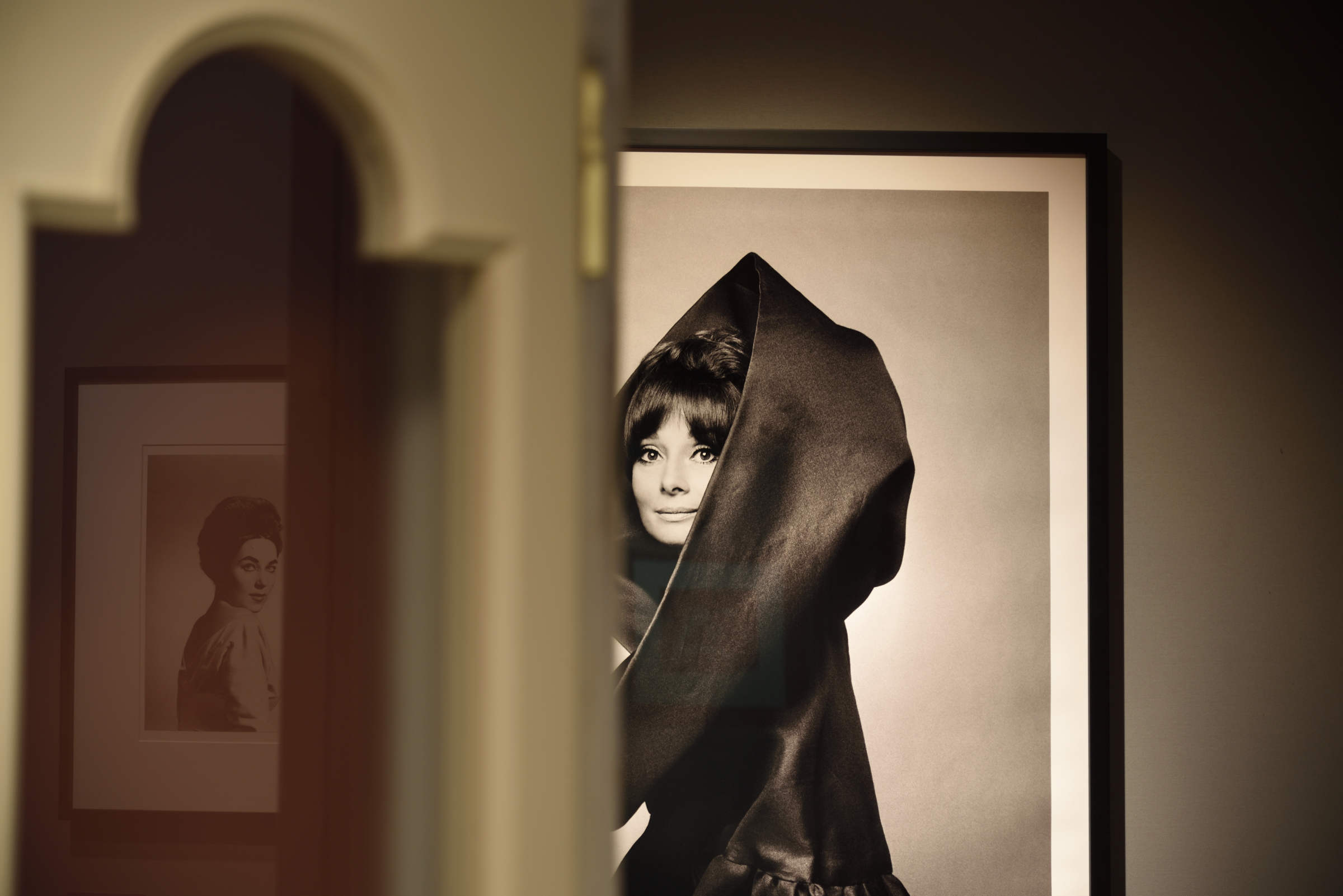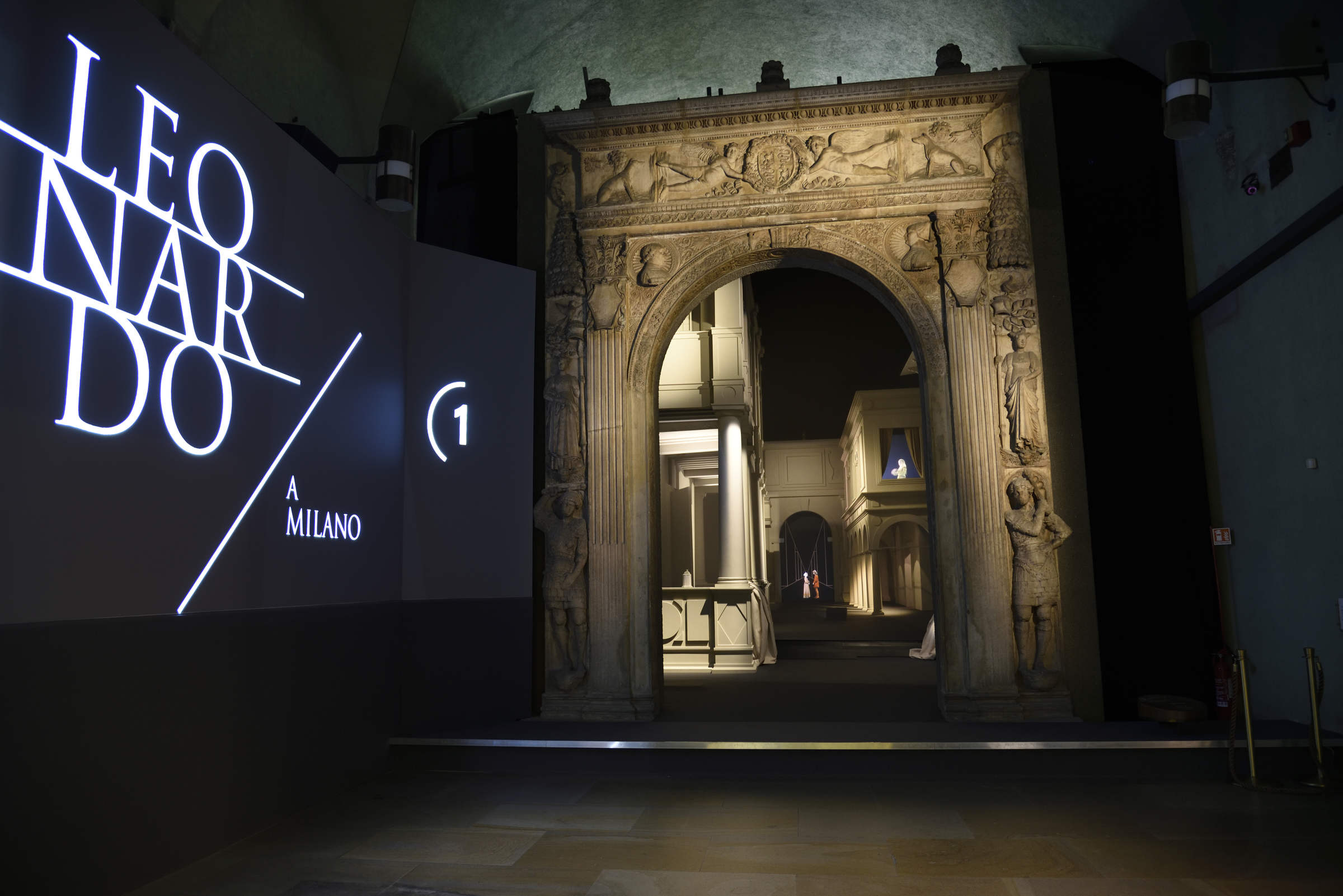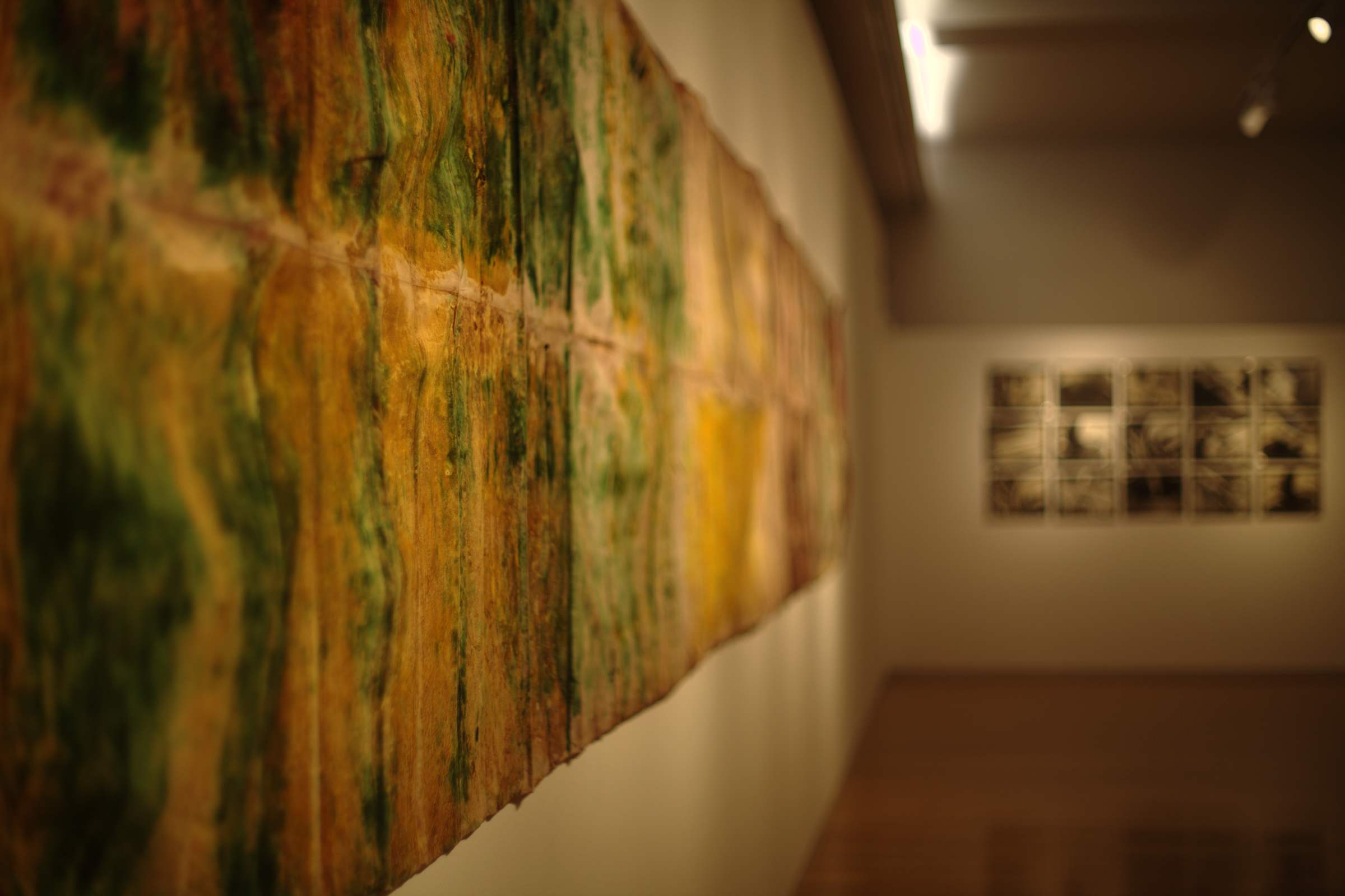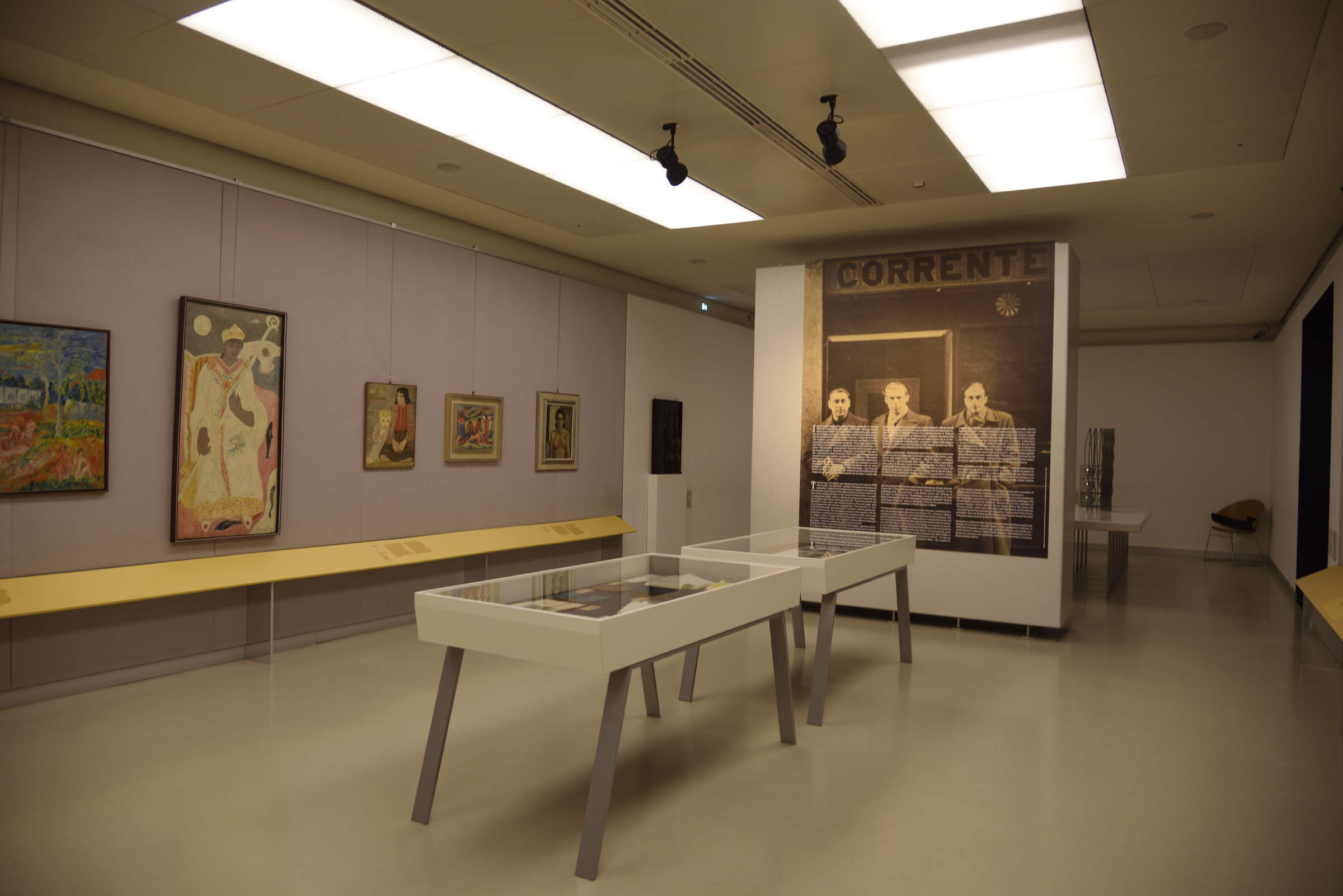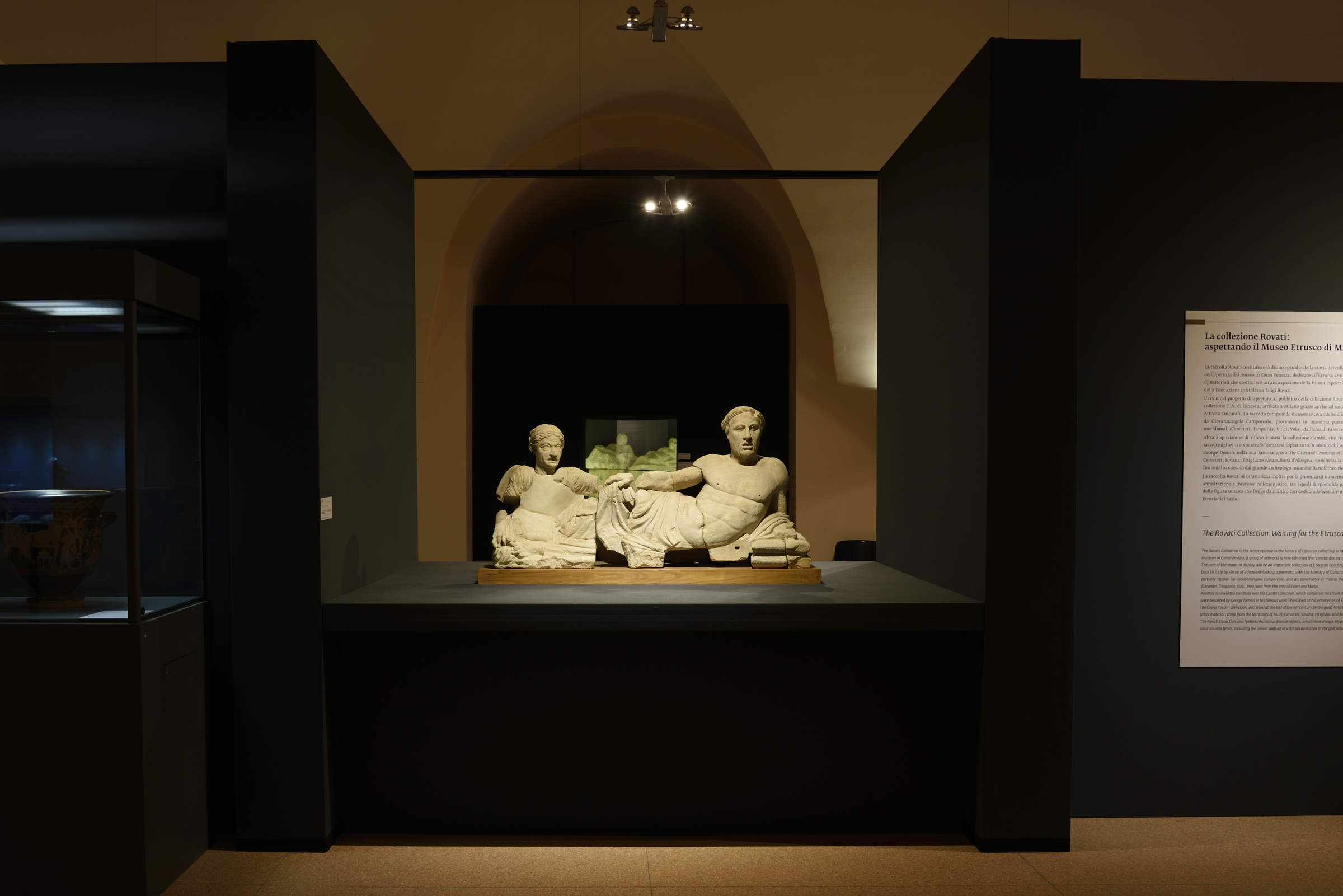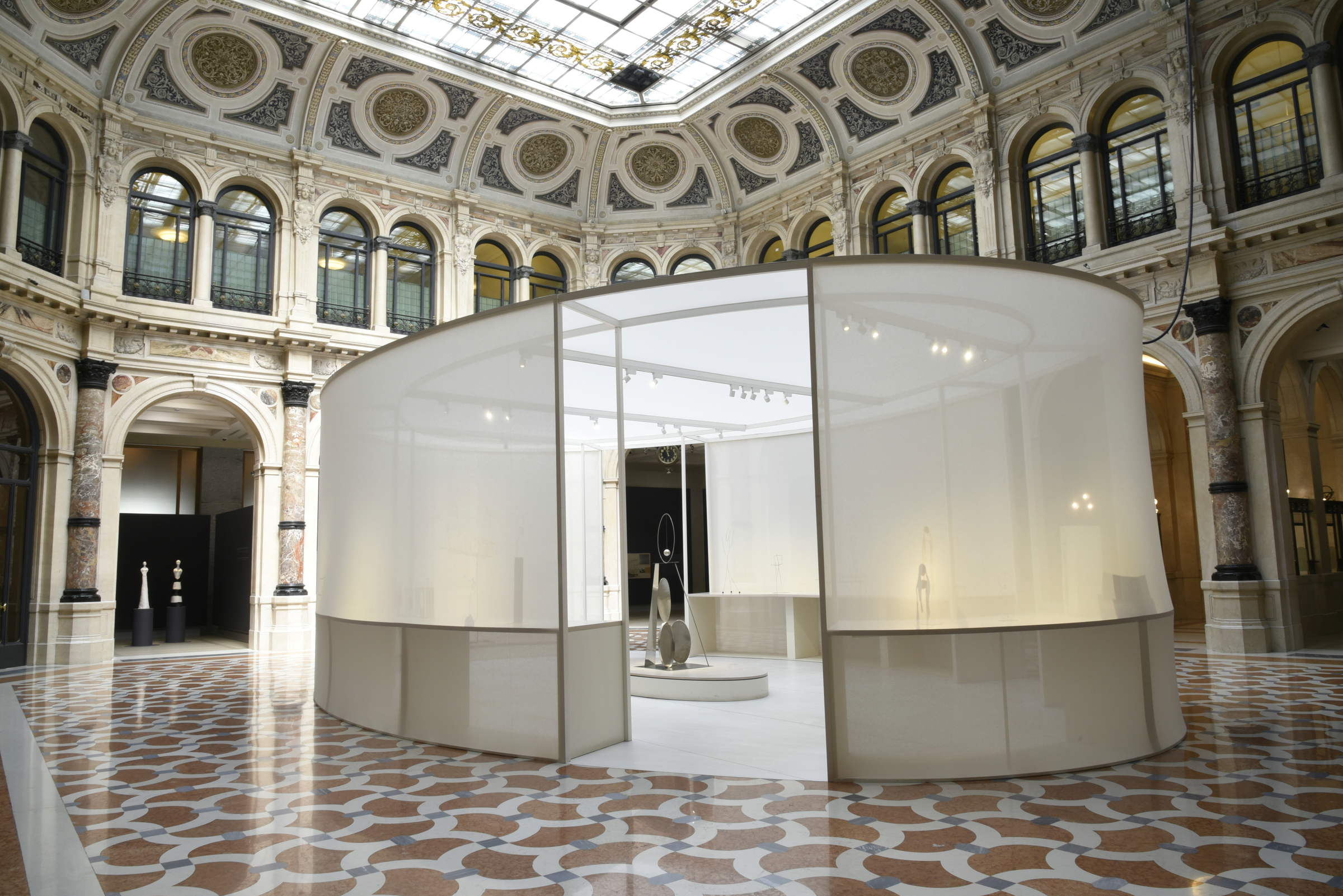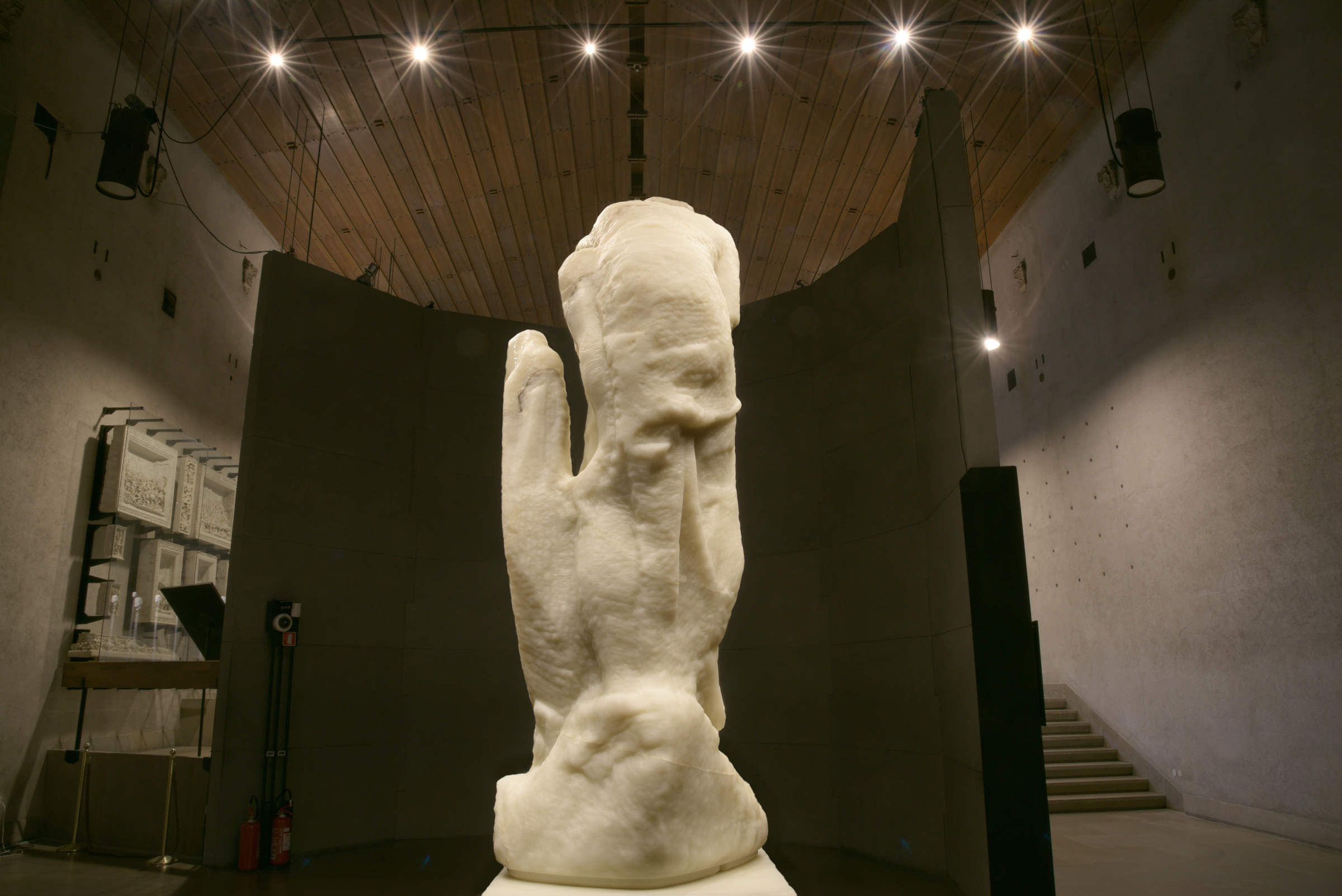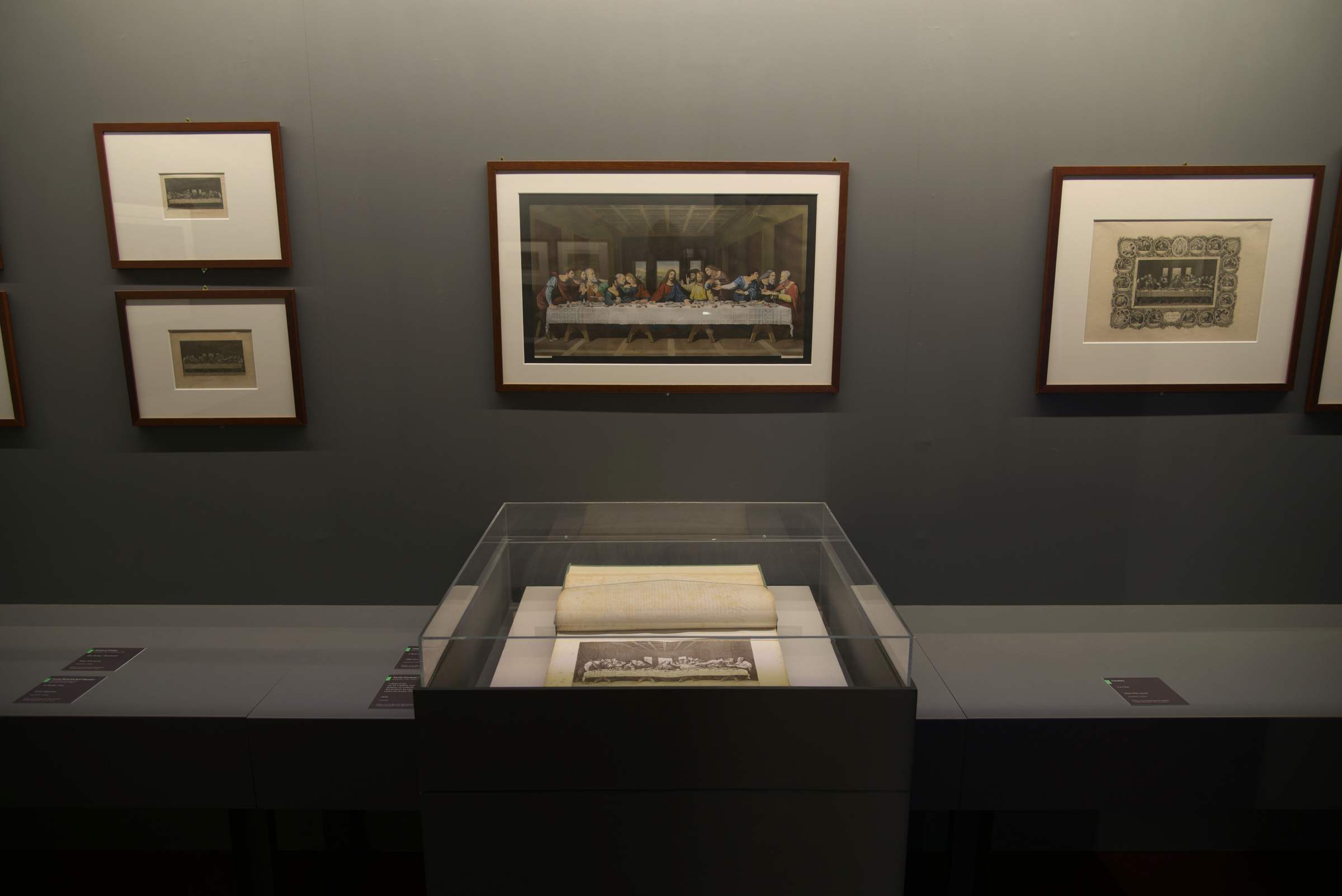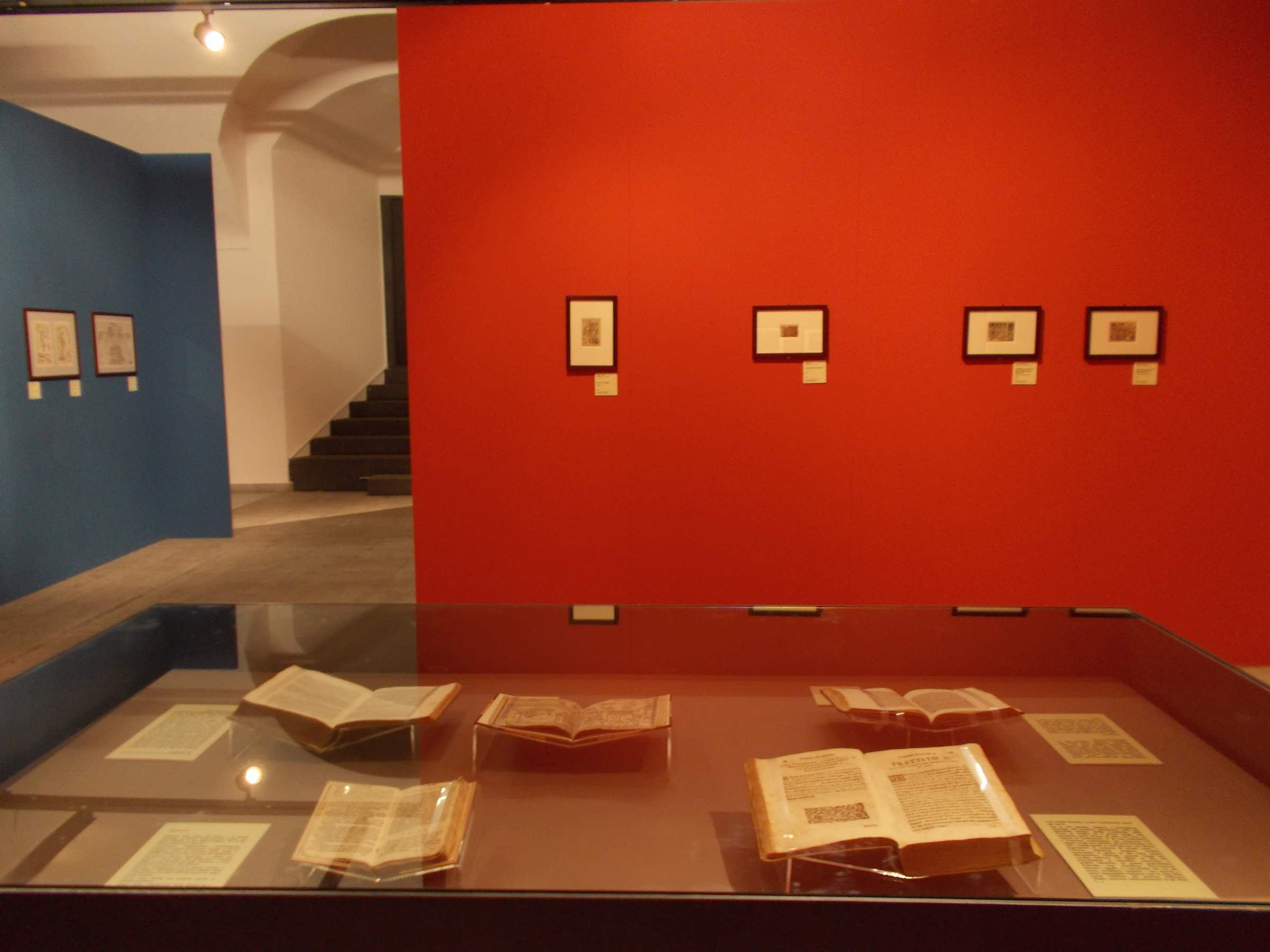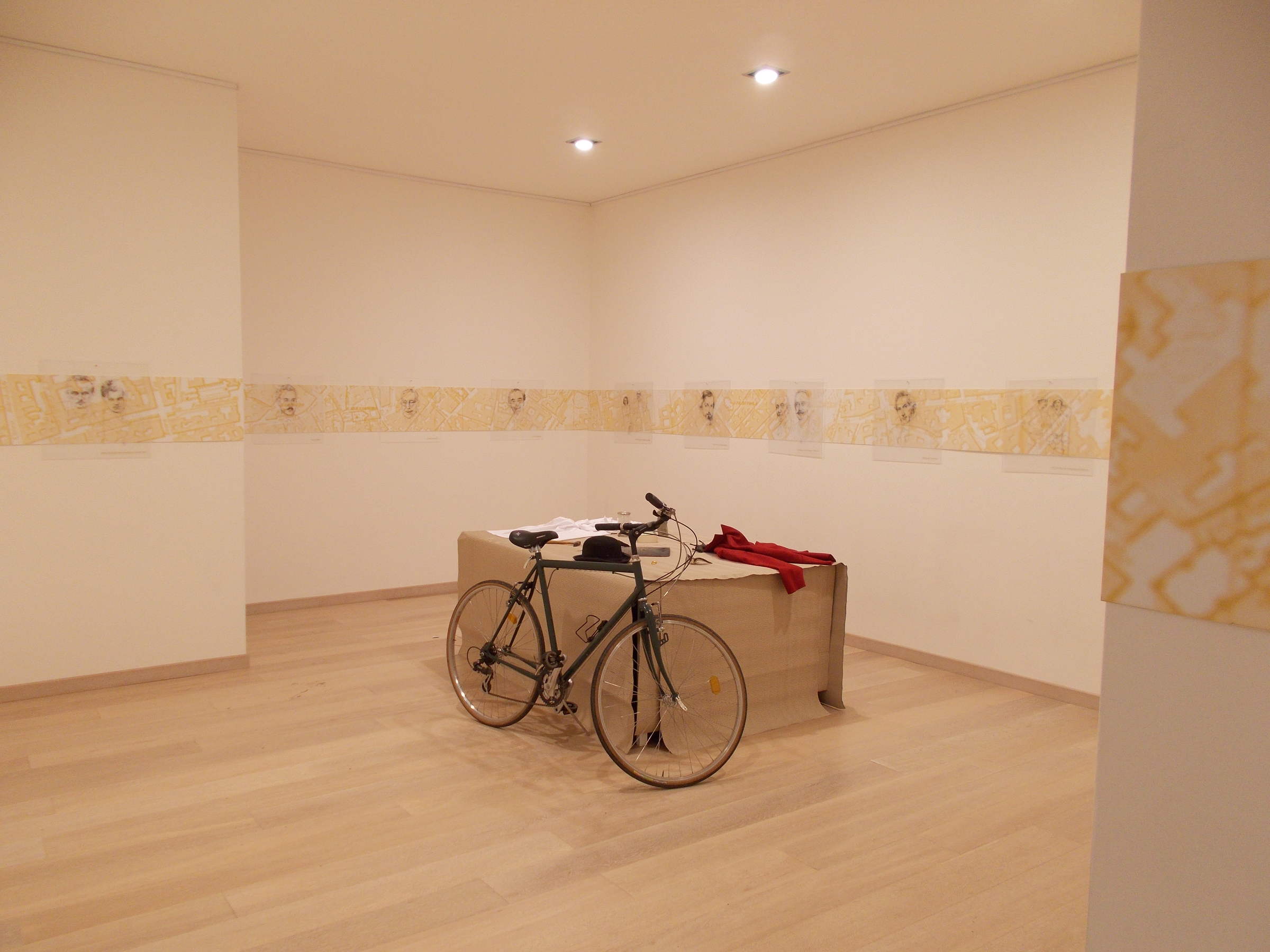Paintings at Municipi
from Sforza Castle Art Gallery
Villa Scheibler / Villa Turro / Emeroteca / Auditorium Cerri
30.11.2019 to 18.01.2020
Tour in four peripheral municipalities of 18th century paintings from the collections of the Pinacoteca of the Castello Sforzesco in Milan.
It was the traditional exhibition of works from the museums of the city center to the external areas in conjunction with the exhibition dedicated to an important Christmas-themed work presented every year at Palazzo Marino, seat of the Milan municipality
The Leonardo's Last Supper for king Francis I
A masterpiece made of gold and silk
Palazzo Reale, Milan
08.10.2019 to 17.11.2019
Exhibition dedicated to the legendary Tapestry of the Last Supper, a 9x5 meter masterpiece - an exact copy of Leonardo's Last Supper - committed by Francis I of France and today part of the Vatican Museums Collections.
The exhibition reconstructs the events of the tapestry through the presentation of paintings, engravings, medals produced close to the French court in the first half of the 16th century.
Countess and Astronaut
female portrait from Mose’ Bianchi to Joan Jonas
MUST Museum, Vimercate
14.12.2019 to 19.04.2020
An exhibition curated by Martina Corgnati where the protagonists are the women, authors or subjects of the 45 works of painting, photography and video presented in the spaces of the MUST Museum in Vimercate, adapted with exhibition walls fitted around the existing setting, to accommodate the new works.
From Marble to Missile
Masterpieces between Tradition and Innovation
Villa Reale's Orangerie, Monza
23.05 to 10.10.2019
Paintings, sculptures and contemporary art installations from the 4th century. B.C. to the 2000s, exhibited in the 18th century Monza Villa Reale greenhouse, eighth stage of the Cariplo Foundation's ArtGate project to document art and culture linked to the productions and collecting skills of the Lombard territories.
Nexhibit Design developed the museographic project giving shape to the curatorial intuition of Martina Corgnati
Leonardo da Vinci 500th Anniversary
Exhibition and Multimedia Installation for the fifth centenary of Leonardo's death
Sforza Castle, Milan
15.05.2019
In the Castello Sforzesco an exhibition with drawings by Leonardo da Vinci, Dürer and other, and two immersive installations reconstruct the history and suggestions of the artist's presence at the court of Ludovico il Moro.
Nexhibit Design has projected the expositive path, the set-up and the display cases for the exhibition, and sets and reception structures for the public in the multimedia areas.
Renata Boero
Kromo - Kronos
Museo del Novecento, Milan
02.04 to 23.06.2019
Personal exhibition of the Genoese artist set up in the space of the Archives of Museo del Novecento.
Nexhibit Design worked out the museographic project together with the curators, Iolanda Ratti and Anna Daneri, and created the set-up by mounting the works both on the wall (the long chromograms), and in the glass showcases (preparing the antacid cardboard supports and mounting the papers).
Museocity 2019
Temporary Exhibition of a Russian Icon
from Gallerie d'Italia's collections
Gallerie d'Italia, Milan
03.03.2019
The Gallerie d'Italia take part in the Museocity project by proposing a rare 19th-century Russian icon from their collections.
Nexhibit Design has designed and created the display panel covered in two-color fabric. For the graphic panel accompanying the presentation we decided to use a satin plexiglas sheet inserted at 45° in the display surface, like a book page in the act of opening.
Corrente 1938
Museo del Novecento, Milan
04.12.2018 - 03.03.2019
A small review on the Milanese movement Corrente integrated into the ordinary museum itinerary.
Inserting temporary events in a pre-existing exhibition area requires a careful definition of spaces and design solutions capable of guiding visitors on a clear and coherent path, in a delicate balance between integration and autonomy with respect to the curatorial logic of the Museum.
The Journey of the Chimera
Etruscans in Milan between archeology and collecting
Archaeological Museum, Milan
11.12.2018 - 12.05.2019
Extensive exhibition with over 200 Etruscan archaeological objects: chalices, amphorae, pottery and antefixes in terracotta and "bucchero"; statuettes, plates and mirrors in iron and bronze, gold jewels and harnesses from the main Italian Etruscan collections.
Nexhibit Design projected the path, and has built the exhibition wall and part of showcases.
Pietro Vannucci known as "Perugino"
Adoration of the three Kings
Palazzo Marino, Milan
01.12.2018 - 13.01.2019
Traditional appointment with art at Palazzo Marino, seat of the Milan city hall, where every year on the occasion of Christmas, a masterpiece inspired by the nativity is presented.
In 2018 an altarpiece by Perugino from the National Gallery of Umbria was proposed and Nexhibit Design was asked to elaborate the design of the exhibition including also a suggestive multimedia projection.
Art as Revelation
From Luigi and Peppino Agrati Collection
Gallerie d'Italia, Milan
16.05.2018 - 19.08.2018
The main museological theme at the Gallerie d'Italia is the use of the large hall at the beginning of the exhibition route: the original Central Hall of the old Commercial Bank headquarter designed by Luca Beltrami at the beginning of the twentieth century.
For this exhibition we decided to place an oval, white and incorporeal shell for Umberto Melotti's filiform sculptures, one of the most important and seductive nuclei of the Agrati collection.
Barry X Ball
Pietà
Sforza Castle, Milan
12.04.2018 - 12.01.2019
Installation by the American contemporary artist Barry X Ball inside the Museum of Ancient Art of the Castello Sforzesco in Milan, in direct conversation with the Italian sculpture of the fifteenth century.
Nexhibit Design provided the general museological consultancy and designed and realized the lighting system of the works and the illustrative internal and external graphics.
Novecento di Carta
Drawings and prints of Italian masters from the civic collections of Milan
Castello Sforzesco, Milano
23.03.2018 - 22.07.2018
Large exhibition of drawings, etchings and artist books of the most famous artists of the last century: from Ensor, Previati, Martini, to Boccioni, Modigliani, Sironi and Morandi, up to Fontana, Afro, Pistoletto, Merz and many others.
250 works on paper for which Nexhibit Design oversaw the exhibition project and the realization of the exhibition.
Non ti abbandonerò mai
Franco Mazzucchelli, actions 1964 - 1979
Museo del Novecento, Milan
08.03.2018 - 10.06.2018
A Review dedicated to the Milanese artist Franco Mazzucchelli, born in 1939, pioneer of research on the creative possibilities of the p.v.c.
Nexhibit Design installed the works and, under the artist's supervision, the large inflatable sculptures, oversaw the supply and installation of the graphics and developed the museographic project in collaboration with the curators Sabino Maria Frassà and Iolanda Ratti to provide a complete picture of Mazzucchelli's production inside the Archives of Museo del Novecento.
Last Caravaggio | Heritage and new Masters.
Journey through the artistic events of the early 17th century between Naples, Genoa and Milan.
Gallerie d'Italia, Milan
30.11.2017 - 08.04.2018
An exhibition on the relationship between Caravaggio and the art scene in Italy in the early seventeenth century, curated by Alessandro Morandotti and opened by the seductive comparison between three paintings by Caravaggio, Strozzi and Procaccini on the same theme, the "Martyrdom of Sant'Orsola", developed in three profoundly different keys.
Nexhibit Design oversaw the museum project and the design of the exhibition structures and showcases.
Archeology of the Last Supper
Reconstruction and diffusion of the Leonardo icon: drawings, engravings, photographs.
Sforza Castle, Milan
01.04.2017 - 25.06.2017
The exhibition, curated by Pietro Marani and Giovanna Mori, reconstructs the genesis of the myth of Leonardo's Last Supper, which immediately reach enormous iconographic luck.
Paintings, engravings, photographs, printed volumes, documents and numerous works on paper were presented in a Nexhibit Design's exhibition with special display caution and rigorous conservative guarantees.
Look at Me
From Nadar to Gursky ~ Photographic Portraits in Unicredit Art Collection.
Unicredit Pavilion, Milan
20.12.2016 - 29.01.2017
The exhibition showed around 200 photographs from 1863, the date of the famous portrait of Baudelaire taken by Carjat, to the 2000s.
Like all photography exhibitions, the theme of conservation played a central role in the design. Equally important was the challenge to use a large multifunctional building in a balanced way for exhibit works that risked being too dispersed in its vast spaces.
Paolo Monti
Fotografie I Photographs 1935 - 1982
Sforza Castle, Milan
16.12.2016 - 12.03.2017
The most complete exhibition dedicated to this central exponent of Italian photographic culture of the twentieth century.
About 200 photographs, all original prints, often worked by Monti himself, exhibited in the rooms of the former Spanish hospital of the Sforza Castle in Milan, for which Nexhibit Design adapted exhibition and lighting structures have already been successfully used for previous events.
Pixel Waves
The Gaze of ... Miguel Chevalier
UniCredit Pavilion, Milan
25.07 - 31.08.2016
Second appointment of the project "The Gaze of ..." created by UniCredit Pavilion.
On this occasion Miguel Chevalier presents his "Pixel Waves", colossal interactive floor video-projections and compares his two-dimensional works with the most recent works of the UniCredit Collection giving life to surprising combinations and allowing transversal and unexpected readings of the Group's historical heritage.
Nexhibit Design provided for this event the graphic and museographic project and some self-supporting exhibitors for the works.
A Beautiful Confluence
Joseph plus Anni Albers and Latin America
MUDEC, Milan
28.10.2015 - 21.02.2016
Dedicated to Joseph Albers and his wife Anni, after Bauhaus experience founders of a fundamental art school in U.S.A., the exhibition illustrates the impact that the ancient cultures of Latin America had on figurative language and teaching of the Alberses. For the presentation of Inca and Maya paintings, fabrics, drawings and artefacts, we were asked to supply display cases and supports of various sizes, prints on Plexiglas and transparent PVC and video monitors.
Gabriele Basilico
I Listen to Your Heartbeat, City
UniCredi Pavilion, Milan
18.12.2015 - 31.01.2016
Extensive anthology on the work of one of the main Italian photographers of the twentieth century edited by Walter Guadagnini with the contribution of Giovanna Calvenzi.
Over 150 shots document Gabriele Basilico's forty years of career in the articulated environments of the UniCredit Pavilion.
For this exhibition, we have drawn up the museographic and lighting project, conceived and laid out the graphics for the sections and produced a part of the display supports.
The Myth of Land of Cuccagna
Engravings from Bertarelli Collection
Sforza Castle, Milan
09.07 - 11.10.2015
An exhibition on the popular myth of the Cuccagna (the Cockaigne) curated by Giovanna Mori and Andrea Perin which presented over a hundred engravings from the prestigious Bertarelli Collection in a suggestive setting designed by Andrea Perin for which Nexhibit Design provided and set up display structures and showcases.
The Gaze of ...
Selected Works from UniCredit Art Collection
UniCredit Pavilion, Milan
31.07 - 30.08.2015
About 300 works from the sixteenth century to the contemporary belonging to the UniCredit collections exhibited for the first time in the new UniCredit Pavilion, the prestigious multifunctional building designed by Michele De Lucchi.
Nexhibit Design was commissioned to study the adaptation of the building to the museum installations, develope the lighting project and design optimized supports for the works of art. For this exhibition we drafted the museographic project and laid out graphics and information panels.
Georges Rouault
Graphic Works
Sforza Castle, Milan
31.03 - 07.06.2015
The exhibition presented 160 graphic works of Georges Rouault from the Tavola Collection, universally believed to be the most complete and most valuable collection of Rouault's graphic work, and was curated by Paolo Bellini, former professor of history of drawing and prints at the Cattolica University of Milan.
Nexhibit Design has designed and supplied the set-up, the information graphics, the frames - including the framing service - and has carried out the accrochage of the works.
Milanese Stories
Travel through Milan with 14 personalities
who lived there
Pini Foundation, Milan
23-25.10.2014
Conceived by the Adolfo Pini Foundation, the exhibition told about the formation project of the circuit of the House Museums of Milan.
It was created through graphic elements and objects that evoked the stories of important personalities from the cultural and creative scene of the city - the architects Albini, Magistretti and Castiglioni, but also Poldi Pezzoli, Alessandro Manzoni etc. - who left their residences to the community. Nexhibit Design has designed, supplied and installed the graphic materials.
Group Portrait / Conversation Piece
Claudia Gian Ferrari collection meets projects of NABA students
Palazzo Morando, Milan
26.06 - 28.10.2014
An exhibition curated by Alessandra Galasso that illustrated the projects of the NABA Fashion and Textile Design students and compared them with a group of clothes that belonged to the influential Milanese gallery owner Claudia Gian Ferrari.
Nexhibit Design prepared the photographic prints for the accrochage, made the hangings of images and clothing and proceeded to illuminate the set-up elements by adapting the existing system.


